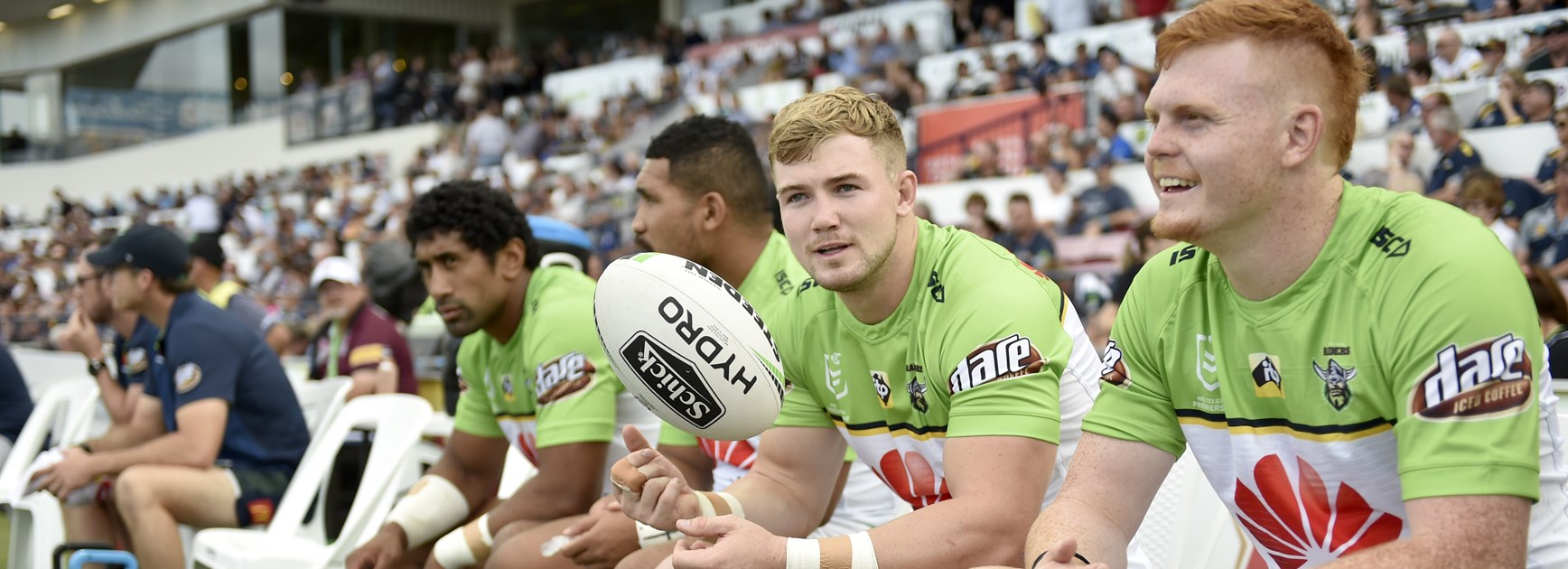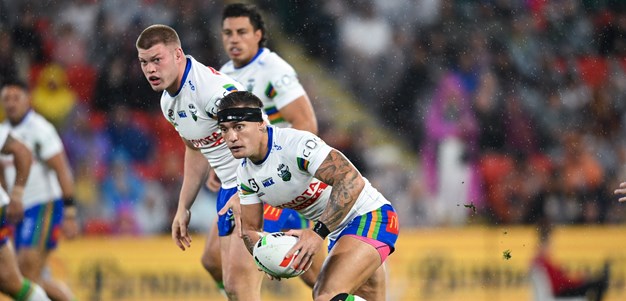
A 25 per cent drop in penalties from last season and reductions in the time allowed for scrums and goal-line drop-outs has helped negate the need for any changes to the existing interchange system.
A meeting of the competition committee unanimously agreed on Tuesday that the number of interchanges for each team should remain at eight per game after being told the average ball in play time for matches had increased from 52.43 minutes after 13 rounds in 2018 to 54.16 minutes this season.
The committee was also presented with a report by Professor Kevin Norton which showed that both the number and intensity of collisions have significantly reduced in 2019, compared to the past three seasons since the interchange was reduced from 10 to eight.
Players in all positions except hooker are also running further per game, while there have been an additional 250 sets of six tackles in the opening 13 round this season compared to the corresponding period of last year’s Telstra Premiership.
Contributing factors for the trends include a significant reduction in penalties from 1777 in 2018 to 1322 and penalty goal attempts, which dropped from 257 last season to 160.
Graham Annesley weekly football briefing – Round 14
The time allowed for scrums to form has been cut from 35 seconds to 30 seconds, while teams now have 25 seconds for a goal line drop-out – also a reduction of five seconds.
“It became clear that a change to the approach by match officials, as well as the shot clock for drop-outs and scrums, had contributed to a change to the game which was the equivalent to a reduction of interchanges,” NRL head of football Graham Annesley said.
“Some of the levers which have been pulled this season have contributed to some of the key trends heading in the direction we want them to.
Competition Committee to consider clamping down on crusher tackles
“There was unanimous support that interchange will remain at eight until it’s agreed that the system requires a further change.”
The meeting was also told that 60 percent of the collective Clubs, and 73 percent of players – based on an RLPA Player Advisory Group – did not support a further reduction in interchange at this time.
“We’re supportive of this direction based on the fact that key metrics are shaping in the right direction and players have actively been engaged in the discussion,” RLPA General Manager Stakeholder Relations Clint Newton said.
The competition committee comprises Newton, Panthers coach Ivan Cleary, Cowboys coach Paul Green, Kangaroos coach Mal Meninga, premiership-winning coach John Lang and former Australian captain Darren Lockyer.
Annesley, NRL CEO Todd Greenberg, Australian Rugby League Commission chairman Peter Beattie and commissioners Wayne Pearce and Peter V’landys are also on the competition committee.
The recommendation will now go to the ARLC before a final determination is made on interchange.






